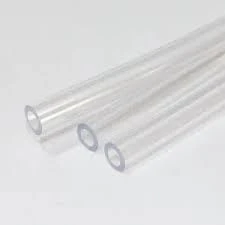Aug . 12, 2024 17:32 Back to list
Exploring the Benefits and Applications of Recycled HDPE Sheets in Sustainable Design
The Benefits of Recycled HDPE Sheets A Sustainable Choice for Modern Applications
High-Density Polyethylene (HDPE) is one of the most versatile and widely used plastics in the world. Its exceptional durability, flexibility, and resistance to chemicals make it a popular choice for a variety of applications, from packaging to construction. However, with the growing concern over plastic waste and environmental sustainability, the importance of recycling HDPE has never been more critical. Recycled HDPE sheets are emerging as a sustainable solution, offering numerous benefits that align with eco-friendly practices.
Understanding HDPE and Its Recycling Process
HDPE is a type of thermoplastic made from petroleum. It is known for its strength-to-density ratio, which makes it suitable for producing containers, piping, and construction materials. When HDPE products reach the end of their lifecycle, they can be recycled. The recycling process involves collecting used HDPE items, cleaning them, and then melting them down to create new sheets or products. This process not only conserves resources but also significantly reduces the amount of waste sent to landfills.
Advantages of Using Recycled HDPE Sheets
1. Environmental Impact One of the most significant benefits of recycled HDPE sheets is their positive impact on the environment. By using recycled materials, manufacturers help to reduce the carbon footprint associated with producing new plastics. Furthermore, recycling helps conserve energy and raw materials, thus promoting a more sustainable approach to resource management.
2. Cost-Effectiveness Recycled HDPE sheets can be more cost-effective than their virgin counterparts. The lower cost of recycling compared to extracting and processing new raw materials can translate into savings for manufacturers and consumers alike. This economic advantage encourages more businesses to adopt recycled materials, fostering a circular economy.
recycled hdpe sheets

3. Durability and Performance Recycled HDPE sheets retain many of the desirable properties of virgin HDPE. They are highly resistant to moisture, chemicals, and UV radiation, making them suitable for outdoor applications. Additionally, they are lightweight yet strong, allowing for easy handling and transportation while maintaining structural integrity.
4. Versatility Recycled HDPE sheets can be used in a wide range of applications, including construction, signage, outdoor furniture, and packaging. Their versatility allows businesses to find suitable applications in various industries, making them a smart choice for environmentally conscious companies.
5. Promoting Recycling Practices The increased demand for recycled HDPE sheets encourages more recycling initiatives. As more businesses commit to using recycled materials, the infrastructure for recycling HDPE is strengthened, leading to a more robust and sustainable economy.
Conclusion
In a world increasingly defined by its environmental challenges, the importance of sustainable materials cannot be overstated. Recycled HDPE sheets represent a practical solution that not only mitigates waste but also encourages responsible sourcing and manufacturing practices. By choosing recycled HDPE, businesses can demonstrate their commitment to sustainability while benefiting from economic and performance advantages.
As awareness grows around plastic pollution and its impact on our planet, the shift towards recycled materials like HDPE will be crucial. Consumers and businesses alike have the power to drive this change, paving the way for a more sustainable future. Adopting recycled HDPE sheets is not merely a trend; it is a step forward in promoting environmental stewardship and ensuring that future generations inherit a cleaner, safer world.
-
Durable Glossy PVC Rigid Sheet | Premium High-Shine Panels
NewsAug.26,2025
-
Durable PP Rigid Sheet: Lightweight, Chemical Resistant Solutions
NewsAug.21,2025
-
PVC Grey Sheet for Extraction: Chemical Resistant & Durable
NewsAug.19,2025
-
Durable PVC Pipe Fittings for Plumbing & Irrigation Needs
NewsAug.18,2025
-
HDPE Steel Belt Reinforced Spiral Corrugated Pipe | High Strength
NewsAug.17,2025
-
HDPE Pipe Fittings: Durable, Leak-Proof Solutions
NewsAug.16,2025

